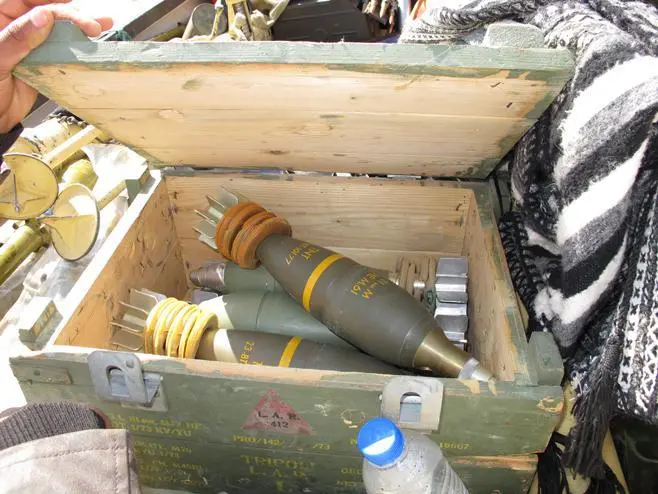A United Nations panel investigating arms transfers to Sudan is scrutinizing how Bulgarian-made mortar rounds, originally exported to the United Arab Emirates (UAE), ended up in the hands of the Rapid Support Forces (RSF) — a paramilitary group battling the Sudanese Army.
The mortar rounds, seized by a pro-government militia in North Darfur last November, were visibly marked with serial numbers that matched munitions Bulgaria had exported to the UAE in 2019. According to a December 19 letter from Bulgaria’s UN mission, those 81mm mortars were delivered specifically to the UAE military. In a statement, Bulgaria’s Ministry of Foreign Affairs stressed: “We adamantly declare that the Bulgarian competent authority has not issued an export licence for defence-related products to Sudan.”
Photos and videos posted online by militia groups after the seizure showed the serial number clearly displayed on the confiscated mortars. The UN panel included this evidence in its annual report, which was submitted to the Security Council earlier this month but has not been made public. The report does document the seizure of the munitions, but does not draw conclusions about their origin.
Despite repeated claims of non-involvement, the UAE finds itself under mounting international scrutiny. The Gulf nation has consistently denied allegations that it is supplying arms to the RSF. Asked directly about the Bulgarian munitions, UAE officials pointed to the UN panel’s own findings, asserting: “[The report] makes clear that there is not substantiated evidence that the UAE has provided any arms or related support to the RSF.”
Experts Seek Answers From UAE
Correspondence between UAE officials and UN investigators indicates the probe is ongoing. The panel reportedly requested flight cargo manifests from UAE authorities for 15 flights that originated from UAE airports and landed in either Amdjarass or N’Djamena in Chad — two key logistical hubs near Sudan.
In a letter dated November 26, the UN panel asked for full documentation of those flights. On December 10, the UAE responded, declining to provide the requested manifests due to the tight timeline for compliance. Instead, Emirati authorities submitted partial details for three of the flights, listing cargo such as food, medicine, and civilian vehicles. These shipments totaled approximately 22 metric tons—about half the carrying capacity of the IL-76 cargo planes used, which can haul up to 40 metric tons each.

Investigators are now left trying to fill in the blanks. With the RSF accused of committing atrocities and consolidating territorial control in Darfur, determining the group’s source of arms has become a priority.
The Sudanese conflict has already led to the deaths of tens of thousands and displaced millions. In a grim assessment, the United States last year concluded that RSF fighters and allied militias had committed acts of genocide since May 2023.
The issue has also escalated on the international legal stage. Sudan’s government filed a case last month at the International Court of Justice (ICJ), alleging that the UAE violated the Genocide Convention by supplying arms to the RSF. The court opened its hearings last week. The UAE has firmly denied the charges, arguing that the ICJ lacks jurisdiction over the case.
The investigation by the UN panel remains active, with further findings expected in future reports. Whether the UAE’s partial disclosures will be deemed sufficient remains uncertain, especially given the significance of the missing flight data.
As such, the presence of Bulgarian mortars in RSF convoys raises serious questions about regional arms transfers, highlighting the complex trail of responsibility in one of Africa’s deadliest ongoing conflicts.
READ ALSO: GBA Demands Action On ‘National Crises’



















